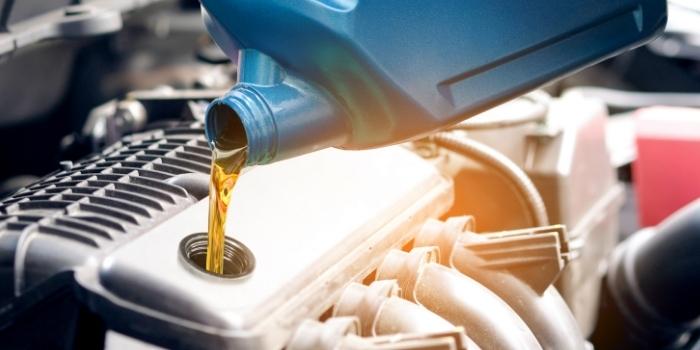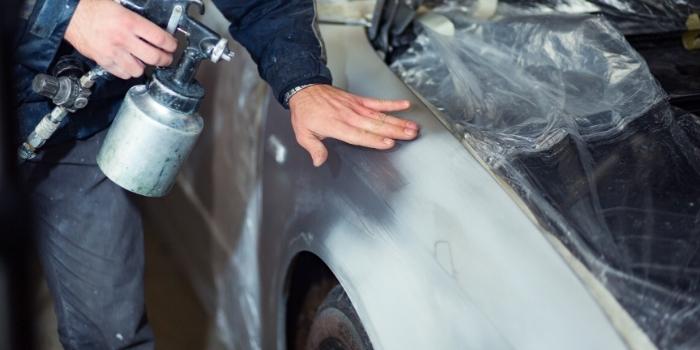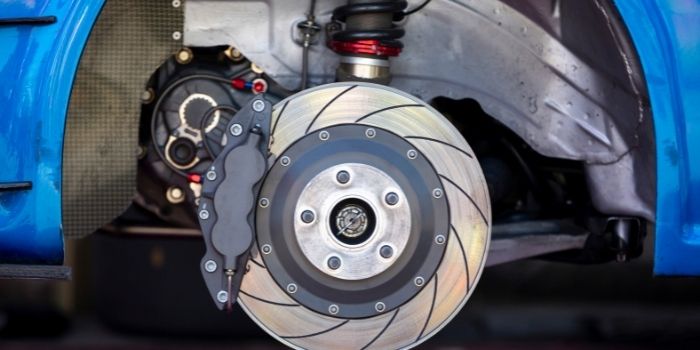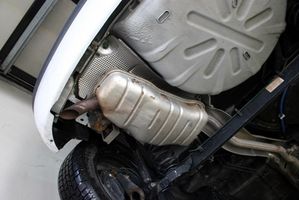
Car engine oil lubricates the engine in order to help the piston drive the vehicle more easily.
Oil leaking is not only a costly thing but also vulnerable. It can affect other parts of the vehicle.
But, there are many oil and fuel additives on the market that claim to help stop the oil leak.
Here in this article, we will discuss different kinds of performance and oil additives available on the market to choose from.
Table of Contents
Types of Performance Additives for My Car
Performance Additives are special additives, not actually helping with leaks but helping for enhancing the performance of vehicles.
Increased performance lets your vehicle avoid leaks.
Certain additives might dilute the oil in your car and make it easy to run through the engine. This eventually helps stop leaks.
Some of the most common types of performance additives for engines include:
1- Viscosity Modifiers
One of the best fuel engine additives – viscosity modifier – helps in maintaining the viscosity index of the oil. Its viscosity keeps changing when it is hot and cold.
Oil’s viscosity index points out the level of change in oil viscosity. Engine oil gets thin during hot climates and thick during cold climates.
The viscosity modifier is also called Viscosity Index Improver (VII).
2- Antifoamants
Antifoamants help to avoid the foaming of motor oil when it circulates inside the engine.
It helps to decrease the friction which causes air bubbles in engine oil. Even the air bubbles formed will burst and disperse quickly.
Cavitation and loss of pressure in oil happen without the addition of this additive.
The quality of engine lubrication is also low resulting in corrosion. Indirectly, they resist corrosion by stopping the foaming of oil.
Anything in excess can prove bad sometimes. Similarly, when you add too many antifoamants beyond the prescribed limit, air bubbles are formed in large numbers.
This is against the main purpose of you adding antifoamants. It should be used at a concentration level of 20 ppm (parts per million).
Before you select the fuel additive for your engine, take into account the ingredients of your engine oil and the corresponding other additives already present.
Pay attention to the instructions to be followed.
Make sure they won’t react in a negative or reverse manner after their addition.
The combination of engine oil with the right additives enhances the performance of the engine in the longer run.
3- Detergents & Dispersants
Detergents help in the prevention of rust formation and removal of deposits in the engine.
During the process of oxidation, impure oil and acids get neutralized by detergents.
These are soluble in nature and the usage of fuel additives helps to prevent the formation of oil sludge in the engine.
Detergents and Dispersants go hand-in-hand. It prevents the layer formation of dust particles and impurities from settling down on the engine components.
Dispersants help in preserving the viscous nature of engine oil for good performance.
4- Gasket Additive
You can find the valve gasket at the top of the engine section. The gasket generates the seal between the engine section and the head.
When it has been consumed for a long time, it can dry and crack and as a result, let the oil leak when it is pumped through the gasket.
Using a gasket additive, you can stick to the plastic and let it reseal the gasket.
5- Plastic Coating
These kinds of additives coat and shield the engine from general wear and tear.
Though plastic additives are not stuck to the engine as it needs high-level heat to do so.
But, it flows through the engine and adheres to other components of plastic.
Thus, this helps with temporary oil leaks and finally, the plastic becomes a sludge, which affects the running of your car.

How Will an Oil Additive Benefit My Car?
If you are concerned about the good performance of the engine along with the increased life span of it as well as the vehicle – the addition of high-quality oil additives will do the job perfectly.
The benefits you get from oil additives slightly vary depending upon their type, but the below mentioned are the common advantages.
a) Reduction of wear and tear:
The major reason (more than 75%) for the wear and tear of the engine occurs during its start-up.
The engine gets damaged when you force it to do a cold or dry start. The addition of an oil additive gives good lubrication to the engine and its components.
This additive forms a layer of seal which enables smoother functioning of the engine during start-up without any problems.
b) Improved mileage due to good compression:
Good lubrication provides a good layer of coating around cylinder valves and rings for smoother compression.
As a result, you get increased torque and HP which gives more mileage.
c) Lesser servicing cost:
Not only does your engine performance gets improved due to the addition of a good oil additive, but it also increases the duration between servicing the engine or refilling of oil.
It enhances the life span of your engine oil by up to 50%. It means a lesser need for you to service or change oil frequently. As a result, you could save a considerable amount of money.
d) Provides stability to engine oil:
The addition of an engine oil additive improves the viscosity level in your engine oil.
When the viscosity ratio gets increased, it keeps the performance of engine oil intact both during hot and cold weather conditions.
e) Heat Reduction:
During the operation of the vehicle, the foaming of engine oil doesn’t allow the heat to dissipate easily, resulting in a heated engine.
The addition of oil additives reduces the friction in engine oil resulting in normalized temperature.
Optimum engine temperature increases the engine life to a great extent.
f) Reduced noise level :
Good lubrication helps the engine to withstand mechanical shocks by providing a better cushion.
As a result, the engine works smoothly without any noise and with no wear and tear.
g) Fuel-Saving:
Studies show that friction between the engine and its components reduces the mileage by about 12%.
When there is good lubrication, the friction level gets reduced and it consumes lesser fuel. Quality fuel combustion is good for the environment as well.

Do You Really Need Additives for Your Car?
Before you decide to buy a fuel additive, ask and answer yourself the question “Is there a real need for me to buy a fuel additive?”.
In the market, you get fuel additives for both diesel and petrol-type engines.
Out of the many brands in the market, Chevron and 3M stand out from the rest.
They manufacture a wide variety of additives for different types of engines.
The main functions of fuel additives are to improve fuel efficacy by keeping the fuel injection system clean, management of gas exhaustion, and preventing engine and fuel passage area corrosion.
All these put together aid in better performance of the engine and improve mileage.
Let us discuss below the possible scenarios in which where you need a fuel additive and when it is not required.
When and Where Do You Require Fuel Additives?
If you live in a place, where the weather situation is erratic and changes from hot to cold climate frequently. There arises a need for you to use a fuel additive.
If you own a diesel car, the type of additive you should use is anti-gel fuel, when the temperature falls below sub-zero levels. This additive prevents the gelling of diesel.
In the case of petrol, there is no need for additives due to the technology of spark-engine feature employed in it.
If you still wish to go with additives, employ octane boosters as it improves the engine performance only in high-end cars. This will not prove effective in the case of normal cars.
If you don’t have the idea to use the car for an extended period, say for a month or two, use the fuel stabilizer additive as it assists in the smooth starting of your engine without any hiccups.
When your car gets old, it is wise to use an additive that supports the better functioning of the fuel injection system. This improves the performance and longevity of the vehicle.
When and Where Using Fuel Additives Don’t Make Sense?
Logically, there is no necessity for a fuel additive in the case of a new car.
During the first couple of years, it is of no use even if you add fuel additives as it will not bring any further positive improvement in the performance of the engine.
On the other hand, you should be more careful not to use any additives during the warranty period, as it makes the warranty void and null.
You cannot claim during your warranty period if the manufacturer comes to know that any oil additive is used to boost the performance of the engine.
In some cases, it can backfire, if no quality fuel additive is not used. Till the expiry of the warranty, it is good to stay away from fuel additives.
If you live in a terrain where the weather condition remains normal throughout the year, then also these fuel additives will not add any value.
Even if your instincts kick in to use fuel additives because simply you think it will boost your performance, don’t use them on regular basis.
Final Thoughts
In case you care for your car, you will certainly enjoy riding it for a long time.
For this you need to maintain the condition of your vehicle regularly to be definite that you can depend on it anytime you need to go for a ride.
It is also important to look after your car and get proper car service on time.
Purchasing the best car parts and auto accessories along with the services that suit your need is highly important.

Based in Orem (Utah) John Paterson graduated from Utah Valley University and has begun writing in 2009. He has a large wealth of experience in writing articles related to cars, automotive repair, wheels, cleaning/maintenance, and much more. He has also written instructional articles in a similar niche for a few online publications as well. Currently, he works as a mechanic in his personal garage shop where he loves serving his countrymen from his heart.





